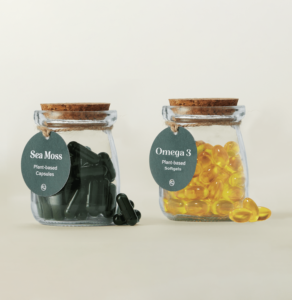The Best Fluffy Pancakes recipe you will fall in love with. Full of tips and tricks to help you make the best pancakes.
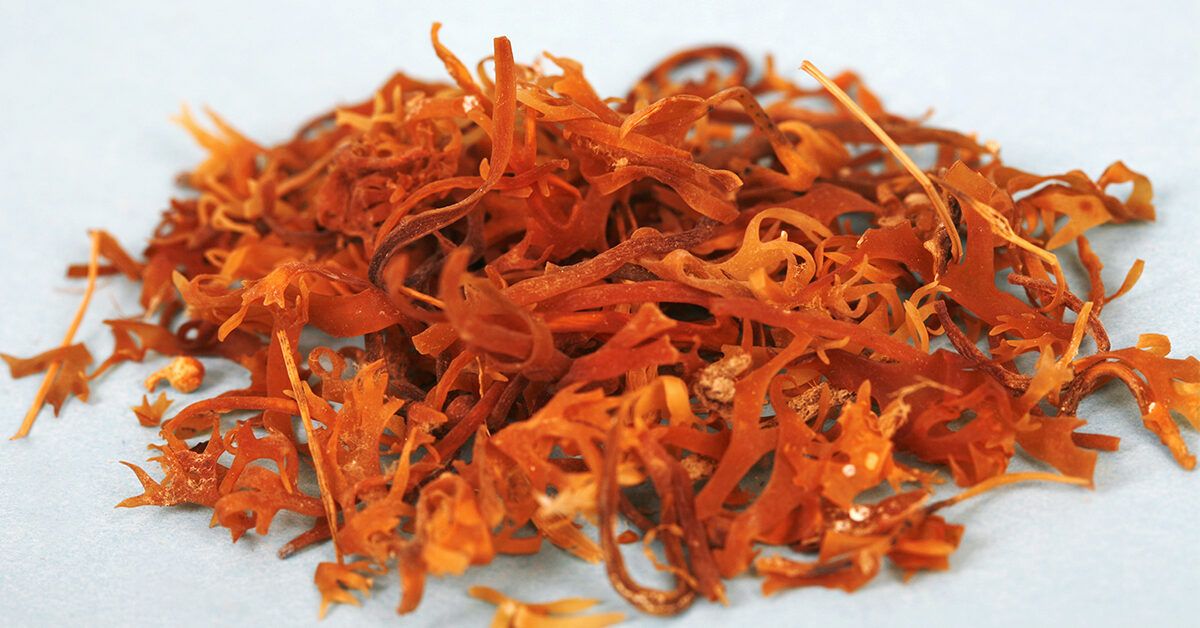
If you’re someone who loves intermittent fasting, you might be wondering whether incorporating sea moss into your fasting routine would nullify the benefits. Well, we’re about to uncover the truth! Many individuals have been curious about whether sea moss breaks a fast, and in this article, we’ll explore this question and shed light on whether this superfood can fit into your fasting regimen seamlessly. So, if you’ve been itching to try sea moss but don’t want to compromise your fasting goals, keep reading to discover the answer!
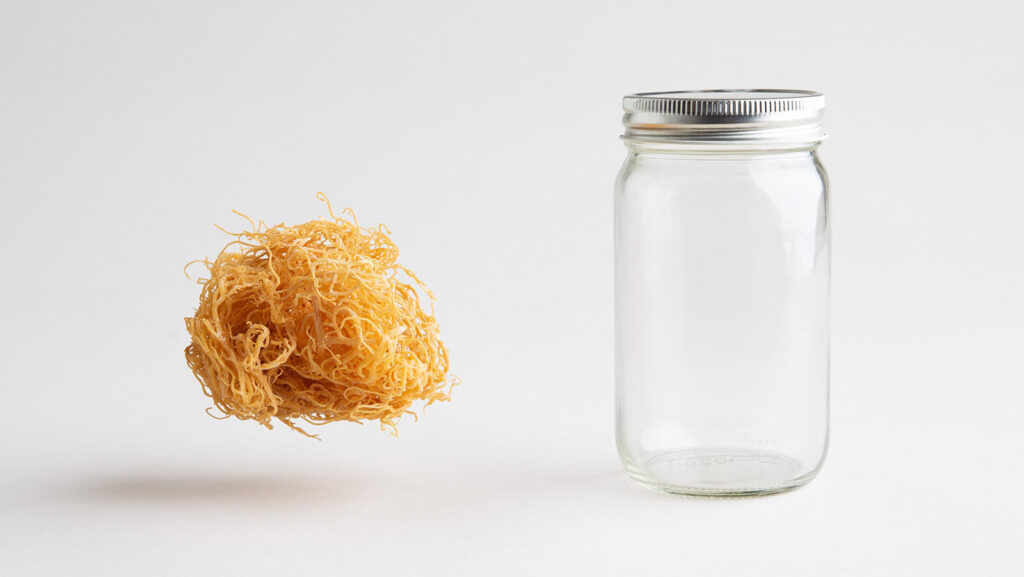
What is Sea Moss?
Sea Moss, also known as Irish Moss or Chondrus Crispus, is a type of seaweed that is commonly found in coastal regions of the North Atlantic Ocean. It has been used for centuries in various cultures for its medicinal properties and nutritional benefits. Sea Moss is rich in vitamins, minerals, and antioxidants, making it a popular ingredient in natural health remedies and dietary supplements.
Definition of Sea Moss
Sea Moss is a type of red algae that grows in dense clusters on rocky surfaces in the ocean. It has a gelatinous texture and is often used as a thickening agent in soups, sauces, and desserts. In addition to its culinary uses, Sea Moss is also valued for its potential health benefits, including boosting the immune system, supporting digestion, and promoting healthy skin.
Origins of Sea Moss
Sea Moss has a long history of traditional use in coastal regions of Ireland, Scotland, and the Caribbean. It has been used for centuries in Irish folk medicine as a remedy for various ailments, such as coughs, colds, and digestive issues. In Caribbean cultures, Sea Moss is often consumed as a popular beverage known as “sea moss drink” or “Irish moss drink.” Today, Sea Moss is cultivated in various parts of the world to meet the growing demand for its nutritional and medicinal properties.
Nutritional Composition of Sea Moss
Sea Moss is a nutrient-dense seaweed that is packed with essential vitamins, minerals, and other beneficial compounds. It is rich in iodine, which is important for thyroid function and metabolism. Sea Moss also contains significant amounts of iron, magnesium, calcium, potassium, and vitamins A, E, and K. Additionally, it is a good source of fiber and contains antioxidants that help protect the body against cell damage caused by free radicals.
Intermittent Fasting Overview
Intermittent Fasting (IF) is a dietary approach that involves cycling between periods of fasting and eating. It has gained popularity in recent years due to its potential benefits for weight loss, improving metabolic health, and promoting longevity. The concept of fasting has been practiced for centuries in various cultures and religions, and IF is an adaptation of these traditional fasting practices.
Definition of Intermittent Fasting
Intermittent Fasting is not a diet, but rather an eating pattern. It involves dividing the day or week into specific fasting and eating windows. There are several different fasting methods, but the most common ones include the 16/8 method (fasting for 16 hours and eating during an 8-hour window) and the 5:2 method (eating normally for 5 days and restricting calorie intake to 500-600 calories for 2 non-consecutive days).
Benefits of Intermittent Fasting
Intermittent Fasting has been associated with numerous health benefits. It can help improve insulin sensitivity, regulate blood sugar levels, and promote fat burning and weight loss. Additionally, IF has been shown to have positive effects on brain health, including reducing inflammation, protecting against neurodegenerative diseases, and improving cognitive function. Some studies have also suggested that IF may help improve longevity and increase lifespan in certain organisms.
Different Intermittent Fasting Methods
There are several different methods of intermittent fasting that individuals can choose from, depending on their lifestyle and preferences. Some popular variations include Alternate-Day Fasting, where individuals fast every other day, and the Warrior Diet, which involves eating small amounts of raw fruits and vegetables during the day and having one large meal at night. It’s essential to choose a fasting method that is sustainable and fits well with your individual needs and goals.
Controversy Surrounding Fasting
While intermittent fasting has gained widespread popularity, there is still some controversy and debate surrounding the practice, particularly regarding what breaks a fast and the concept of “autophagy.”
Debate on What Breaks a Fast
One of the primary points of contention in the fasting community is the question of what can be consumed during the fasting period without disrupting the benefits of fasting. Some argue that consuming anything other than water breaks a fast, as it can stimulate insulin secretion and disrupt the fasting metabolic state. Others believe that certain zero-calorie beverages, such as black coffee or tea, can be consumed without breaking a fast.
Importance of ‘Autophagy’ in Fasting
Autophagy is a cellular process that occurs during fasting, where the body breaks down and recycles damaged cell components. It is believed to play a crucial role in various aspects of health, including aging, disease prevention, and cellular regeneration. The debate arises when discussing whether consuming certain substances, such as sea moss, can potentially disrupt or enhance the autophagy process.
Different Opinions on Allowable Consumables during Fasting
Opinions on what is permissible to consume during a fast can vary widely. Some individuals argue that consuming sea moss or other low-calorie foods and beverages that do not significantly spike insulin levels can be included in a fasting protocol without compromising the metabolic benefits. Others maintain a stricter approach, adhering strictly to water-only fasting during fasting periods.
Understanding Sea Moss and Fasting
To understand the potential effects of sea moss on fasting, it’s essential to explore its nutritional composition and how it may interact with the body during a fast.
Nutritional Benefits of Sea Moss
Sea Moss is highly regarded for its nutritional profile. It is rich in essential minerals like iodine and magnesium, vitamins, and antioxidants that support overall health. These nutrients can help meet the body’s nutritional needs during a fasting period and potentially enhance the overall benefits of fasting.
Caloric Content of Sea Moss
While sea moss is nutrient-dense, it is relatively low in calories. This characteristic makes it an attractive option for individuals looking to incorporate a source of nutrients during a fasting period without significantly affecting overall calorie intake.
Does Sea Moss Affect Insulin Levels?
The impact of sea moss on insulin levels is a subject of debate. Some studies suggest that sea moss contains bioactive compounds that may help regulate blood sugar levels and improve insulin sensitivity. However, more research is needed to fully understand the potential effects of sea moss on insulin regulation during fasting.
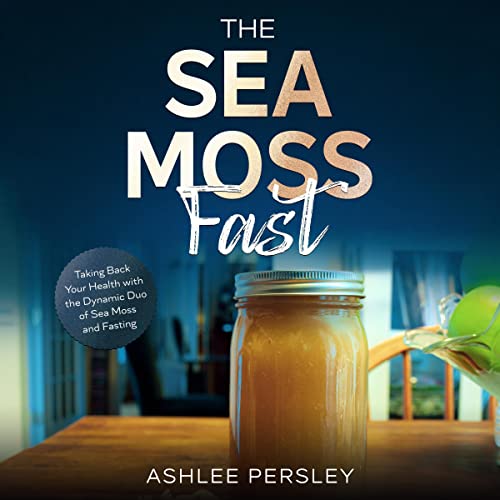
Effects of Sea Moss on Fasting
Exploring the potential effects of sea moss during fasting can shed light on whether it can be incorporated into a fasting protocol.
Impact of Sea Moss on Autophagy
Autophagy is a key aspect of fasting, and understanding how sea moss may affect this cellular process is crucial. Some argue that sea moss, with its natural compounds, may enhance autophagy, while others believe it may disrupt or slow down the process due to the nutrients it provides.
Sea Moss as an Appetite Suppressant
One potential benefit of sea moss during fasting is its ability to act as an appetite suppressant. The gelatinous nature of sea moss can help create a feeling of fullness and satiety, making it easier for individuals to adhere to their fasting windows and control their caloric intake.
Sea Moss as a Source of Nutrients during Fasting
Sea Moss contains a wide range of essential vitamins and minerals that can help meet the body’s nutritional needs during a fast. Incorporating sea moss into a fasting routine can provide additional micronutrients that may be lacking during periods of restricted food intake.
Moderate Sea Moss Consumption during Fasting
If you decide to incorporate sea moss into your fasting routine, it’s important to understand how to consume it effectively.
Sea Moss Gel versus Whole Sea Moss
There are different forms of sea moss available, including sea moss gel and whole sea moss. Sea moss gel is a convenient option that can be easily added to various recipes or consumed on its own. Whole sea moss requires soaking and blending before use but may retain more of its natural properties and nutrients.
Recommended Dosage of Sea Moss during Fasting
The recommended dosage of sea moss during fasting can vary depending on factors such as individual needs, health conditions, and fasting goals. It’s advisable to start with small amounts and gradually increase intake, monitoring how your body responds. Consulting with a healthcare professional or nutritionist can help determine the appropriate dosage for your specific situation.
Choosing Quality Sea Moss Products
When incorporating sea moss into fasting, it is essential to choose high-quality products that have been sourced responsibly and processed without the use of harsh chemicals or contaminants. Look for reputable brands that prioritize transparency and provide detailed information about their sourcing and production methods.
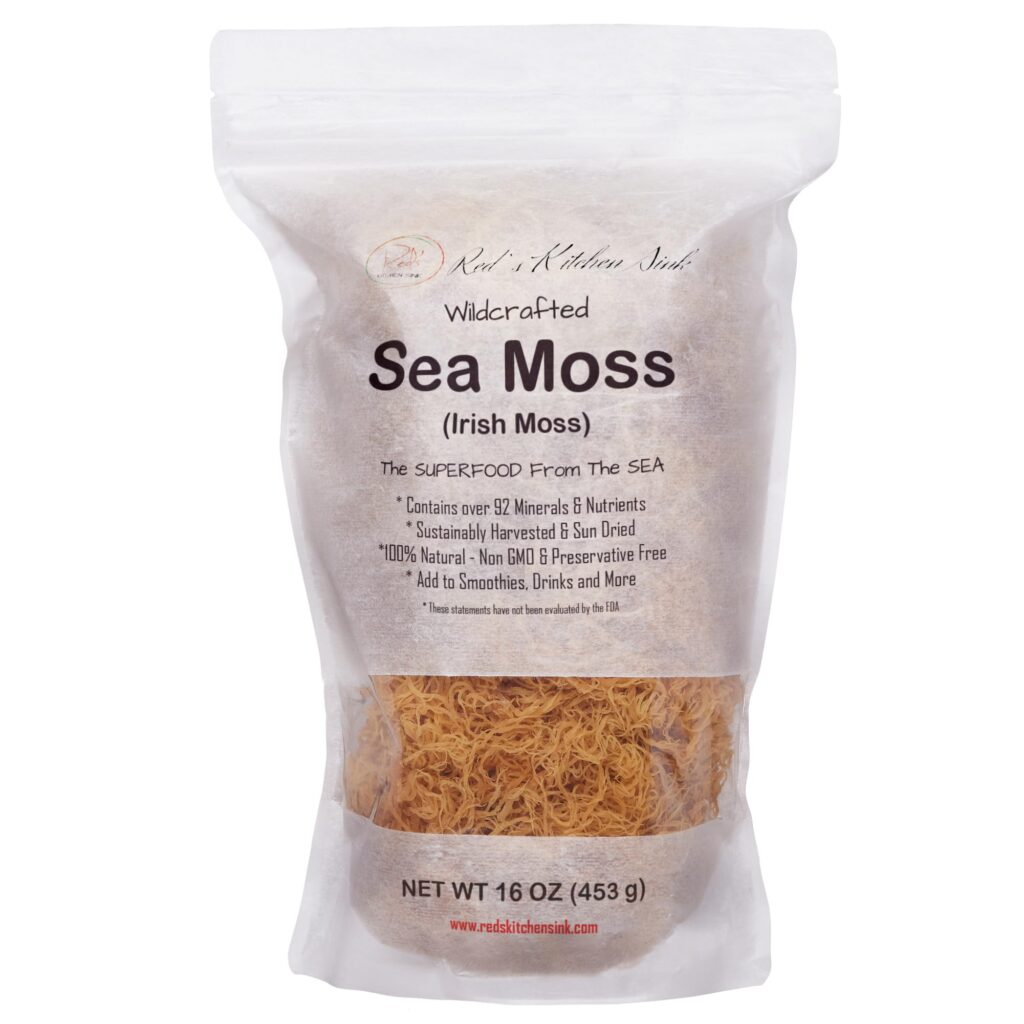
Opinions from Experts
Understanding the perspectives of health professionals and existing research can serve as valuable insights when considering the inclusion of sea moss in fasting practices.
Views of Health Professionals
Health professionals’ opinions on sea moss and fasting can vary, and it’s important to consider their expertise and research-based knowledge to make informed decisions. Consulting with a healthcare provider, nutritionist, or fasting expert can help evaluate potential benefits and risks based on individual health status.
Research Studies on Sea Moss and Fasting
While studies specifically examining the effects of sea moss on fasting are limited, research on the individual components and potential health benefits of sea moss contributes to the overall understanding of its potential impact during fasting. Researchers continue to explore the potential effects of sea moss on various health parameters to provide more evidence-based recommendations.
Considerations for Individuals with Specific Conditions
Individuals with specific health conditions, such as diabetes, thyroid disorders, or gastrointestinal issues, may require additional considerations when incorporating sea moss into their fasting routine. Consulting with a healthcare professional who is knowledgeable about their specific condition can help navigate potential risks and benefits.
Personal Experience and Testimonials
Anecdotal evidence and personal testimonials can provide valuable insights into personal experiences with sea moss during fasting.
Anecdotal Evidence from Fasters
Many individuals who practice intermittent fasting have shared their experiences with incorporating sea moss into their fasting routine. Some report feeling more sustained energy, improved digestion, and enhanced overall well-being. However, anecdotal evidence should be taken with caution, as individual responses can vary.
How Users Incorporate Sea Moss into Their Fasting Routine
Individuals incorporate sea moss into their fasting routine in various ways. Some prefer consuming it in the form of sea moss gel, while others incorporate it into smoothies or other recipes. Experimenting with different methods can help find the most effective and enjoyable way to include sea moss while fasting.
Positive and Negative Experiences
While many individuals report positive experiences with sea moss during fasting, it’s important to recognize that not everyone may have the same outcomes. Some individuals may experience digestive discomfort or other adverse effects. Paying attention to personal reactions and adjusting consumption accordingly is crucial.
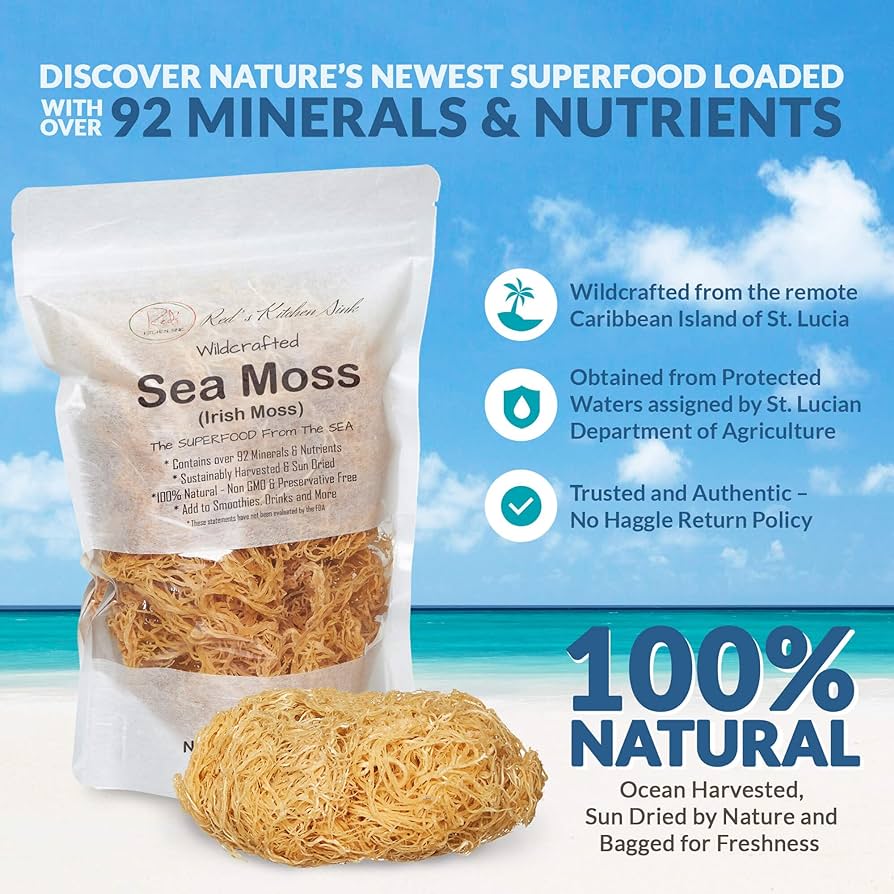
Conclusion
In conclusion, sea moss holds potential as a nutrient-dense ingredient that can be incorporated into fasting routines. It is rich in essential vitamins, minerals, and antioxidants, making it an attractive option for individuals looking to meet their nutritional needs during fasting periods. However, the impact of sea moss on autophagy and insulin regulation during fasting is still a topic of debate and requires further research.
Based on the available evidence and personal experiences, sea moss can be a valuable addition to a fasting routine when consumed in moderation and in accordance with individual goals and preferences. It’s important to consult with healthcare professionals, consider personal health conditions, and choose high-quality sea moss products. Further research is warranted to gain a deeper understanding of the potential benefits and risks associated with sea moss during fasting.




